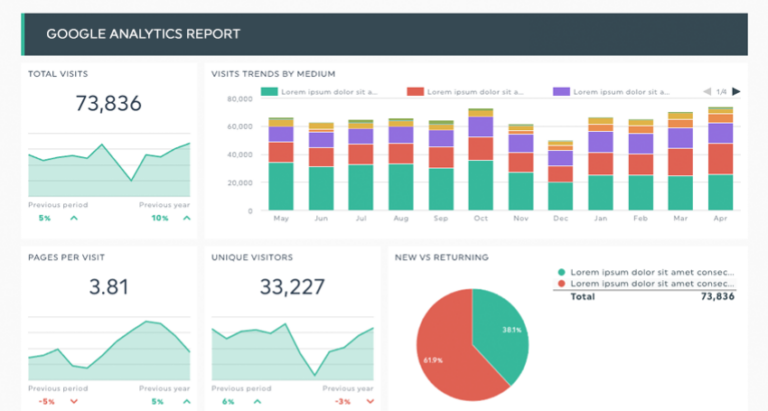SEO Techniques for Beginners: Boosting Your Website’s Visibility
Mastering SEO as a beginner can seem challenging, but focusing on foundational techniques can yield impactful results. By following these simple SEO strategies, you can improve your website’s ranking, drive more traffic, and ultimately connect with your target audience. This guide covers essential SEO techniques that beginners can start implementing right away to lay the groundwork for a successful online presence.
What is SEO and Why is it Important?
Before diving into techniques, it’s helpful to understand what SEO is and why it matters. SEO (Search Engine Optimization) is the process of improving your website’s visibility on search engines like Google. A well-optimized website ranks higher in search engine results, making it easier for users to find you. For businesses and content creators, SEO is essential because it:
- Increases website traffic
- Enhances brand visibility
- Attracts high-quality visitors
- Supports long-term growth
1. Keyword Research: The Foundation of SEO
What It Is: Keyword research is the process of finding and analyzing words or phrases that people use in search engines to find information.
Why It’s Important: Using the right keywords can help you connect with your target audience and improve your website’s ranking for terms they’re actively searching for.
How to Do It:
- Use tools like Google Keyword Planner, Ubersuggest, or Ahrefs to find keywords relevant to your industry.
- Start with “long-tail keywords” (phrases with 3+ words) as they are usually less competitive and target specific searches. For instance, instead of “fitness,” use “home workout routines for beginners.”
- Focus on keywords with moderate search volume and low competition to get faster results as a beginner.
2. On-Page SEO: Optimizing Your Web Pages
What It Is: On-page SEO involves optimizing elements directly on your website to improve search engine rankings.
Why It’s Important: Search engines evaluate these elements to understand the content and purpose of each page, making on-page SEO crucial for visibility.
How to Do It:
- Title Tags: Use clear, descriptive titles that include your primary keyword. Title tags should ideally be between 50-60 characters.
- Meta Descriptions: Write brief, compelling descriptions (about 150-160 characters) for each page. This description appears in search results and should include your primary keyword.
- Headers and Subheaders (H1, H2, H3): Structure your content with headers that break down the text for readability and include keywords.
- Image Alt Text: Use descriptive alt text for each image, as this helps search engines index images, plus it enhances accessibility.
- Internal Linking: Link to other pages on your website where relevant. Internal links guide users to related content and help search engines understand the structure of your site.
3. Quality Content Creation: Writing for Users, Not Just for SEO
What It Is: Quality content is informative, well-written, and valuable to your audience.
Why It’s Important: High-quality content keeps users engaged, encourages shares, and can attract backlinks from other sites.
How to Do It:
- Focus on User Intent: Ensure your content answers the user’s questions or fulfills their needs. For example, if your keyword is “how to bake bread,” provide a step-by-step guide.
- Use a Mix of Content Formats: Incorporate videos, infographics, or images along with text to make your content more engaging.
- Optimize for Readability: Use bullet points, short paragraphs, and simple language to improve readability and keep visitors on your page longer.

4. Link Building: Boosting Your Website’s Authority
What It Is: Link building is the practice of acquiring hyperlinks from other websites to your own.
Why It’s Important: Backlinks from reputable sites act as a “vote of confidence” and help search engines see your site as a trustworthy source.
How to Do It:
- Guest Posting: Write articles for other websites in your niche and include a link back to your site.
- Engage with Influencers: Connect with industry influencers who may be willing to link to your site if you provide valuable content.
- Create Shareable Content: Producing unique, informative, or entertaining content increases the likelihood that other websites will link to it naturally.
5. Mobile Optimization: Ensuring a Seamless Mobile Experience
What It Is: Mobile optimization ensures that your website is fully accessible and functional on mobile devices.
Why It’s Important: With over half of internet traffic coming from mobile devices, Google prioritizes mobile-friendly websites in search rankings.
How to Do It:
- Responsive Design: Use a responsive design that automatically adjusts to fit different screen sizes.
- Optimize Images for Mobile: Compress images and use the correct image format to prevent slow loading times on mobile.
- Simplify Navigation: Ensure menus and navigation are easy to use on smaller screens. Avoid pop-ups that could hinder the mobile experience.
6. Page Speed Optimization: Keeping Visitors Engaged
What It Is: Page speed optimization focuses on reducing the time it takes for a website page to load completely.
Why It’s Important: Fast-loading pages improve user experience and are favored by search engines, helping your rankings.
How to Do It:
- Image Compression: Use tools like TinyPNG or Compress JPEG to reduce image file sizes without sacrificing quality.
- Browser Caching: Enable browser caching to allow frequently used resources to load faster for returning visitors.
- Reduce Redirects: Each redirect increases page load time, so minimize their use where possible.

7. Technical SEO: Making Your Site Accessible for Search Engines
What It Is: Technical SEO involves the optimization of your website’s technical elements to improve crawling and indexing.
Why It’s Important: Effective technical SEO ensures that search engines can find, crawl, and index your website.
How to Do It:
- Create an XML Sitemap: A sitemap helps search engines understand the structure of your site. Tools like Yoast SEO (for WordPress) make it easy to generate one.
- Fix Broken Links: Use tools like Screaming Frog to identify broken links on your site. Fixing these improves user experience and keeps search engines happy.
- Enable HTTPS: An SSL certificate provides encryption and secures your site, making it more trustworthy. Most hosting providers offer SSL setup.
8. Using Analytics: Tracking Your SEO Efforts
What It Is: Analytics tools track and measure the effectiveness of your SEO strategies.
Why It’s Important: Monitoring your website’s performance helps you see what’s working, what isn’t, and where you can improve.
How to Do It:
- Google Analytics: Track metrics like bounce rate, session duration, and organic traffic.
- Google Search Console: Check for indexing issues, monitor your website’s visibility, and identify any search engine errors.
- Monitor Keyword Rankings: Use tools like SEMrush or Ahrefs to track how your target keywords are performing in search results.

9. Local SEO: Targeting Local Audiences
What It Is: Local SEO involves optimizing your site to attract visitors from specific geographic areas.
Why It’s Important: For businesses with a physical location or those serving local areas, local SEO is essential to connect with nearby customers.
How to Do It:
- Google My Business: Set up and optimize a Google My Business profile with accurate information, including address, hours, and contact details.
- Local Keywords: Include local terms, such as “best Italian restaurant in [city name]” in your content.
- Local Citations: Ensure your business is listed consistently across online directories like Yelp, Yellow Pages, and TripAdvisor.
Why Choose Verve Companion for Your SEO Needs?
At Verve Companion, we specialize in all aspects of SEO—from foundational techniques to advanced strategies. We recognize that SEO can be complex, and our team is here to simplify the process for you. Our experts stay up-to-date on the latest search engine trends, ensuring your website is optimized for success in a constantly evolving landscape. By choosing Verve Companion, you gain a partner who’s committed to your growth. We’ll handle the technicalities so you can focus on what you do best: running your business. Let’s take your website from unseen to seen with tailored SEO solutions. Contact us now!
Summary
Implementing these beginner SEO techniques is a fantastic starting point for your website’s journey to better visibility and traffic. However, if you want to see faster results or need expert assistance, Verve Companion is here to help. Our team will guide you through each step, helping you make a lasting impact in search engine rankings.
